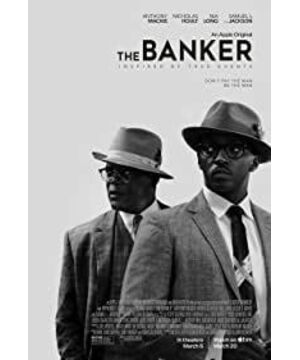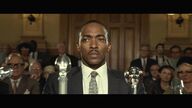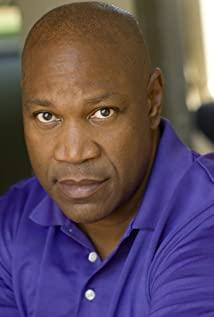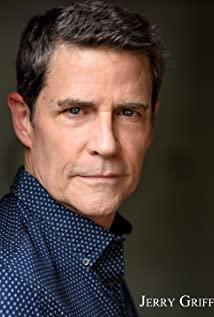In recent years, Hollywood has produced many good films that break the white-centric perspective, from "Green Book" and "Moonlight" sweeping the Oscars, to "Hidden Figures" paying tribute to the contribution of black women who are unknown to outsiders to the American aerospace industry. They are all dedicated to shed light on the obscured history, so that people and things that were once suppressed, ignored, and underestimated can be seen. It can be said that this kind of racial writing, along with women’s writing and sexuality writing, has broken out of the center and is reshaping the mainstream historical narrative in the United States, echoing the BLM and Me too movements in reality, and becoming the “new mainstream”.
AppleTV+ designated "The Banker" as the first original film, which can be said to echo this new mainstream, intending to use the "Academy Award" to open up the situation for itself. Judging from the results, this is a work with a very solid script and storytelling, and a very good performance.
Personally, I like the role of Bernard in Mackie's interpretation very much, which echoes the black pianist in "Green Book". According to Joe (he said many of the finishing touches), Bernard is uptight, square-ass (stereotype, boring), always wearing black-rimmed glasses, a bowler hat, not drinking alcohol, and cigarettes In stark contrast, Joe, who keeps his wine in his hands and is wild and sloppy. Mackie interprets his kind of gin very well. It is quite interesting that when he was forced to disguise himself as a cleaner, he had a hundred reluctance on his face. A dispute with his wife is also worth pondering, and he points to gender under racial issues. The problem. Of course, the importance of self-esteem is directly proportional to the expectations and self-discipline of the self. Bernard's perseverance, business, and digital acumen have also made him the soul of the banker trio.
Another shining point of Bernard is his "chivalrous" heart: he hopes to use the power of real estate investment and banks to break down the barriers of racial segregation and the lack of opportunities for black people to develop. When his career was dragged into an unprecedented crisis by the white guy Steiner played by Nicholas Hoult, he showed his ball: he gave up the opportunity to cooperate with the white senator to obtain judicial immunity, chose "non-cooperation", and fought to the death. As Qiao said, "turn out, that you are a goddam revolutionary!"
Joe, who was born with a golden spoon and had a playboy style, formed a contrast to Bernard's restraint, seriousness, and innocent heart. He represented a kind of cynisicm, a kind of sobriety in the world at that time. He doesn't trust white people, but he doesn't trust black people either. He believes that people can change when they have money. He also saw Bernard's own "anger" that he didn't want to admit, a "rage" that could help them make a fortune, but it could also put them in danger, again hitting all odds with the pebble.
It is precisely because of the kind of madness in Bernard's bones that drives them to detach themselves from their personal "independence" and travel back to Texas from California to pursue a deal that is obviously unworthy of a banker's risk-return calculation. In its portrayal of the environment, the film takes us back to the situation of the 1950s and 1960s, and experiences the repression of people of color by the American social system, not only the segregation of physical space, but also the deprivation of financial opportunities, including the inability to obtain mortgages , unable to apply for business loans. When we saw that Bernard was pitted because he needed to cooperate with the Irishman Buck, and that Joe and Bernard needed to find a white guy to be the front man in order to do business with white people (this is similar to the Chinese paper son back then), We can understand Bernard's "anger" (even if it doesn't seem to be the case) when we see that the operators behind the scenes need to act as drivers and cleaners when signing contracts, and that they will be threatened and intimidated because of Black-owned banks. A bad Steiner's wife will also deeply think that black people can't be smarter than white husbands), and the granular restoration of the environment also makes Bernard's original intention to help his compatriots with business investment as leverage is not hypocritical.
Yes, business can also be a kind of social activism - if the story is true reduction.
In addition to racial writing, "The Banker" can actually be regarded as a financial film, a business war film, and watched together with "Wall Street", "The Big Short" and other films.
For those who want to understand commercial real estate investment, "The Banker" is a very good introductory textbook. It contains the cap rate (translated into "yield rate" in Chinese, which is not very accurate. It should be the capitalization rate, the core of commercial real estate. Concept) and real estate valuations are not in the least eye-catching, and the commercial negotiation scene between Steiner and Renault is also quite brilliant. When it comes to the banking part, there is not much to talk about. In the banking industry of that era, financial derivatives such as CDO/CDS had not yet debuted, and Steiner came up with another bank to take over the "bad" loan package (more precisely because the Ministry of Finance was compelled to issue a statement). assets), are still the most elementary form of the Ponzi scheme. What I personally don’t quite understand lies in Bernard’s logic from real estate to banking: I can understand that banks may consider landlord’s factors and not reject their loan applications, but by becoming a bank’s landlord “infiltrating” the bank, I understand Information on real estate transactions? Black question mark face. Besides, considering the economic situation of black people at that time, can you really find so many solid black mortgage businesses?
Those who are interested in the large amount of financial terms and business warfare content in the film may like it, but those who do not like it may feel bored, which slows down the pace and weakens the emotional strength of the entire film. My opinion is that the director chose to use a linear narrative and a straightforward way of telling Bernard from Texas to California, starting with real estate investment, to the bold acquisition of Banker's Building, to returning to Texas to buy banks and issue mortgages to blacks. The characteristics of several main characters, ranging from real estate to banking, are clearly explained in an orderly manner, but the disadvantage of this narrative is that the previous part lacks tension and suspense. Bernard's opposite narrative, creating the effect of Rashomon, may be more tense. But if it is not handled properly, it will put the cart before the horse and be self-defeating.
The stories of ethnic minorities starting businesses in the United States include "When Happiness Comes Knocking" in ancient times, "New Arrivals" in comedies, and "National Treasure Bank" and "Minari" in the recent past. Anyone who is interested can come and have a look.
View more about The Banker reviews











